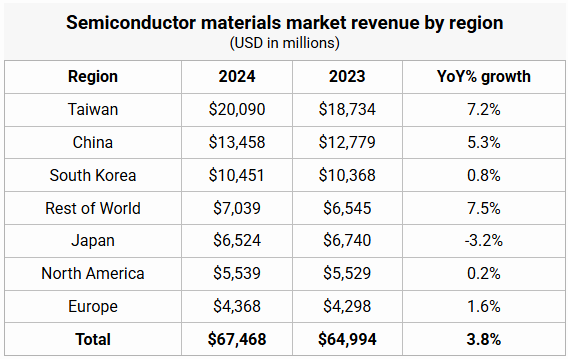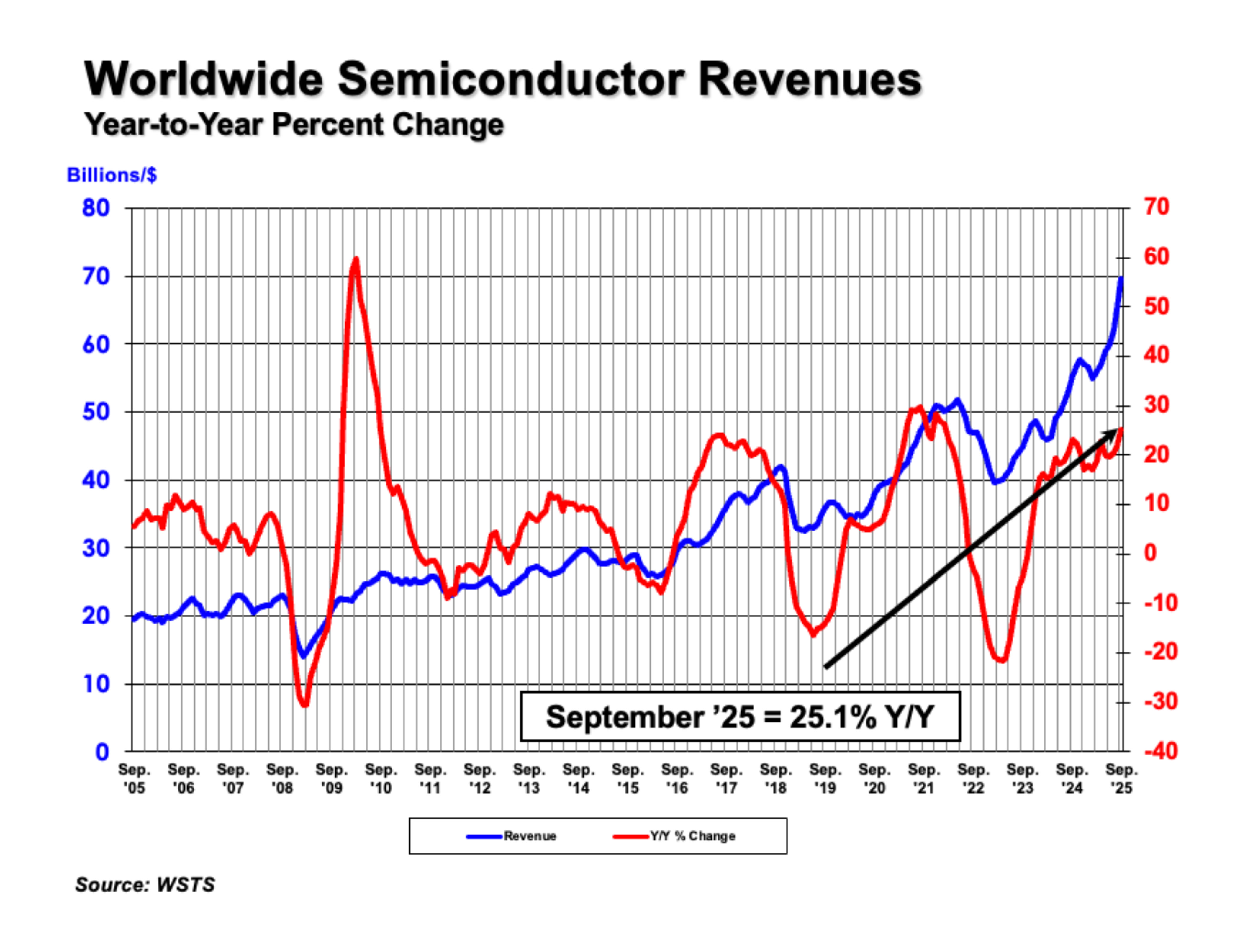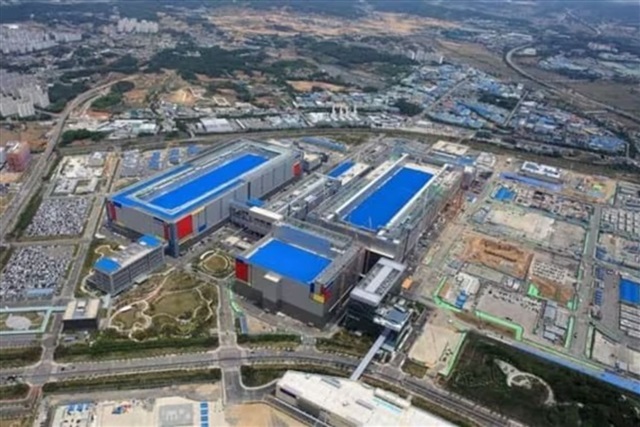The recovery of the overall semiconductor market, as well as the increasing demand for advanced materials for high-performance compute and high-bandwidth memory manufacturing, supported 2024 materials revenue growth.
Wafer fabrication materials revenue increased 3.3% to USD 42.9 billion in 2024, while packaging materials revenue grew 4.7% to USD 24.6 billion last year.
The chemical mechanical planarisation (CMP), photoresist, and photoresist ancillaries segments experienced strong double-digit growth driven by increased complexity and the number of processing steps required for advanced DRAM, 3D NAND flash and leading-edge logic integrated circuits (ICs). All semiconductor materials segments, except for silicon and silicon-on-insulator (SOI), registered year-on-year increases. The demand for silicon, particularly in the trailing edge segment, remained weak in 2024 as the industry continued to work through excess inventory, resulting in a 7.1% decline in silicon revenue in 2024.
Taiwan, with USD 20.1 billion in revenue, was the world's largest consumer of semiconductor materials for the 15th consecutive year. China, at USD 13.5 billion in revenue, continued to register year-over-year growth, ranking second in 2024, while Korea followed as the third-largest consumer with USD 10.5 billion in revenue. All regions, except for Japan, posted single-digit increases in 2024.

Stay up to date with the latest in industry offers by subscribing us. Our newsletter is your key to receiving expert tips.

WASHINGTON—November 3, 2025—The Semiconductor Industry Association (SIA) today announced global semiconductor sales were $208.4 billion during the third quarter of 2025, an increase of 15.8% compared

Samsung Electronics is transforming its Pyeongtaek Campus Line 4 (P4) in South Korea into a manufacturing base focusing on HBM4 production. Analysts indicate that Samsung is increasing the proportion

Samsung scores another major foundry victory, expanding its roster of high-profile clients on advanced nodes. After Tesla selected the company in July to produce its AI6 processor under a $16.5 billio